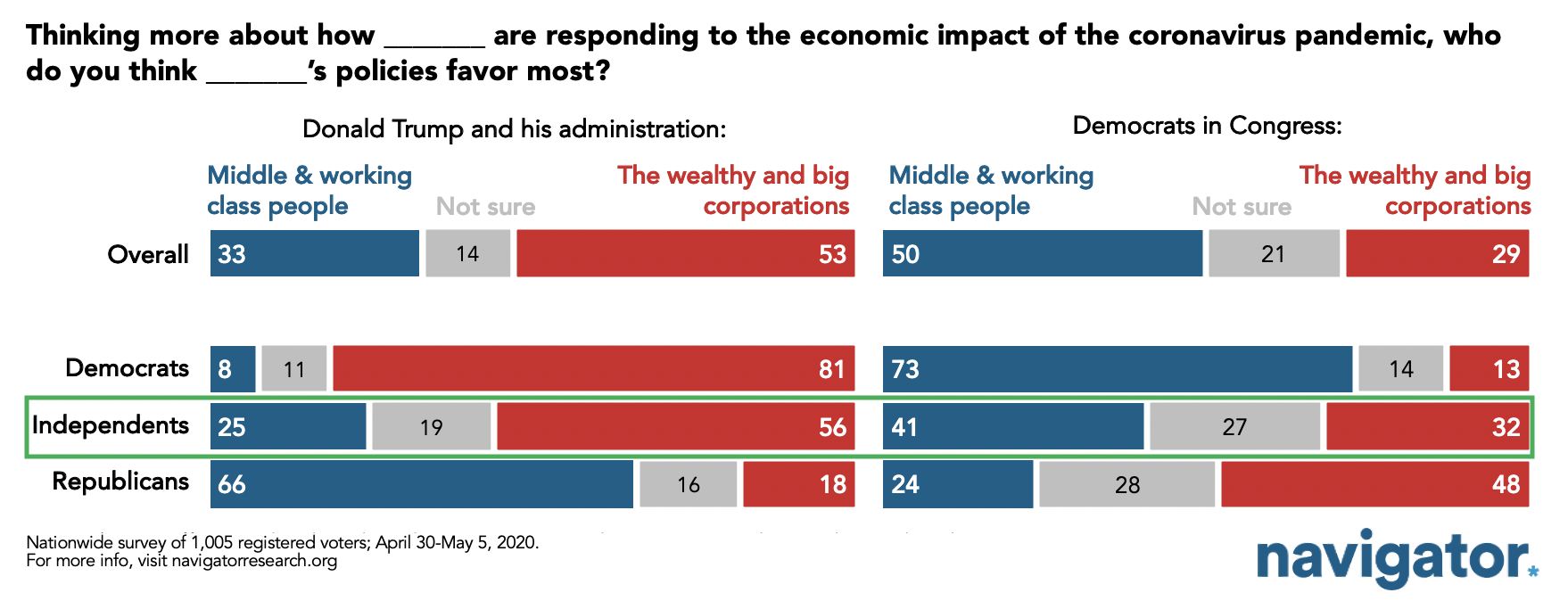Welcome to NAVIGATOR – a project designed to better understand the American public’s views on issues of the day and help advocates, elected officials, and other interested parties understand the language, imagery, and messaging needed to make and win key policy arguments.
This is a dynamic time, and as a result, Navigator will transition to a daily tracking poll on the coronavirus crisis. For the foreseeable future, we will be tracking public opinion every weekday, releasing on a Tuesday-Saturday schedule. In addition, future editions will provide more messaging guidance to the progressive community.
This edition of our daily tracking release features findings from a national online survey of 1,005 registered voters conducted April 30-May 5, 2020 and a national online survey of 1,687 registered voters conducted April 27-May 4, 2020.
Key takeaways
- Americans are hearing less from Trump on the pandemic, and those who report hearing negative things mention reopening, dangerous medical advice, and dishonesty.
- While the majority of Americans are more concerned social distancing will end too soon, Republicans are split.
- Congressional Democrats’ response to the crisis is seen as favoring the working class, while Trump’s favors the wealthy.
Majority Disapprove of Trump’s Handling
For more than three weeks, Trump’s approval rating on his handling of the coronavirus pandemic has been underwater: today, he’s in the negative by double digits.
- The share of Americans who “strongly disapprove” continues to rise and has reached a new high of 42% today on his handling of the pandemic.
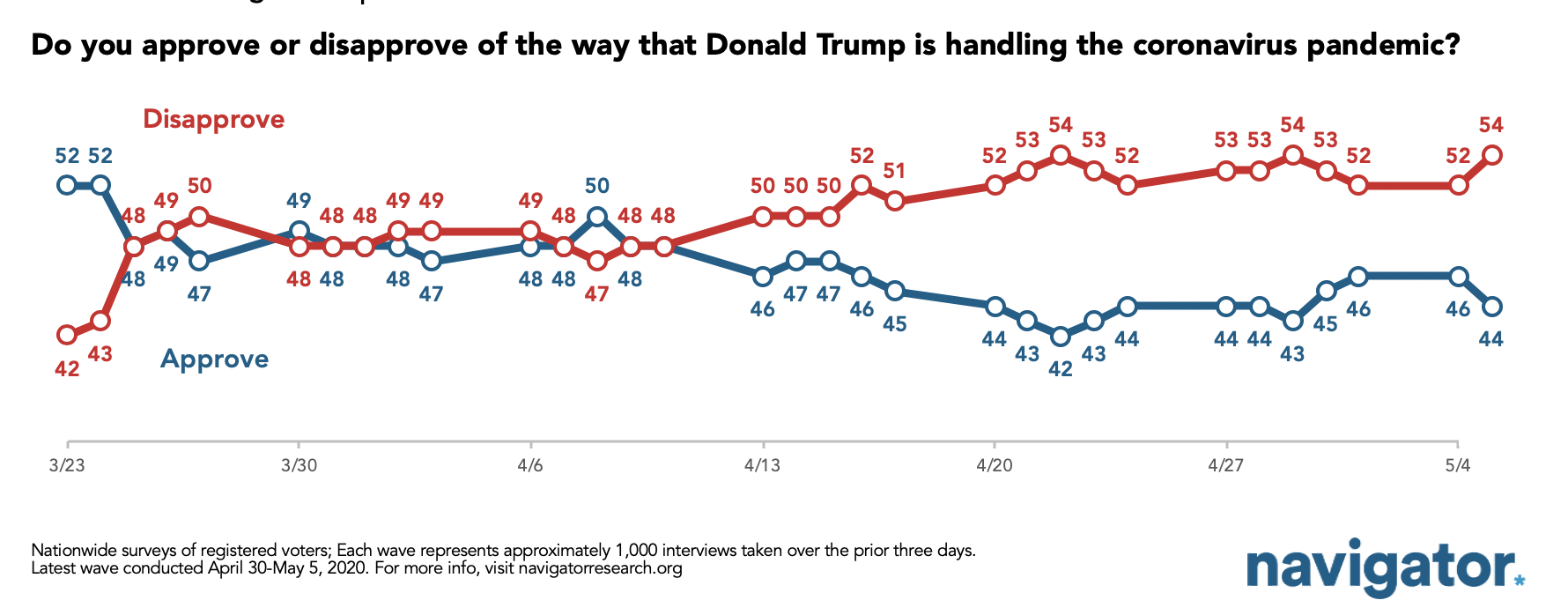
Trump Ratings Down Across Most Issues
Trump’s approval ratings continue to be underwater on his handling of his job as president, the issue of health care, and the coronavirus pandemic.
- Among independents, approval of his handling of the coronavirus pandemic is at -28 (34% approve/62% disapprove) and on the issue of health care is at -32 (24% approve/66% disapprove).
- On a separate question, Democrats in Congress sustain an advantage over Trump on trust to improve the health care system by 14 points (49% trust Democrats/35% Trump).
Americans Hearing Slightly Less from Trump
Since April 16, there’s been a 10-point decrease in Americans hearing “a lot” about Donald Trump’s handling of the coronavirus pandemic, following his decision to end his daily press conferences.
- Younger Americans between the ages of 18-44 (20% hearing “a little” or “nothing”), African Americans (21%), and independents (21%) are particularly unlikely to hear “a lot” from Trump.
Americans Still Hearing About Injecting Bleach – But Also Lack of Testing, Trump’s Lies, and Reopening Too Soon
When compared to our word cloud from our April 28 update, while Americans are still hearing negative things about Trump’s comments on injecting disinfectants, other issues on his handling have become more frequently cited.
- For those who report hearing mostly negative things, his pushing of states to open up too soon in contradiction of his own guidance, his general failure to do “not enough,” and his “lies” also rise to the top.
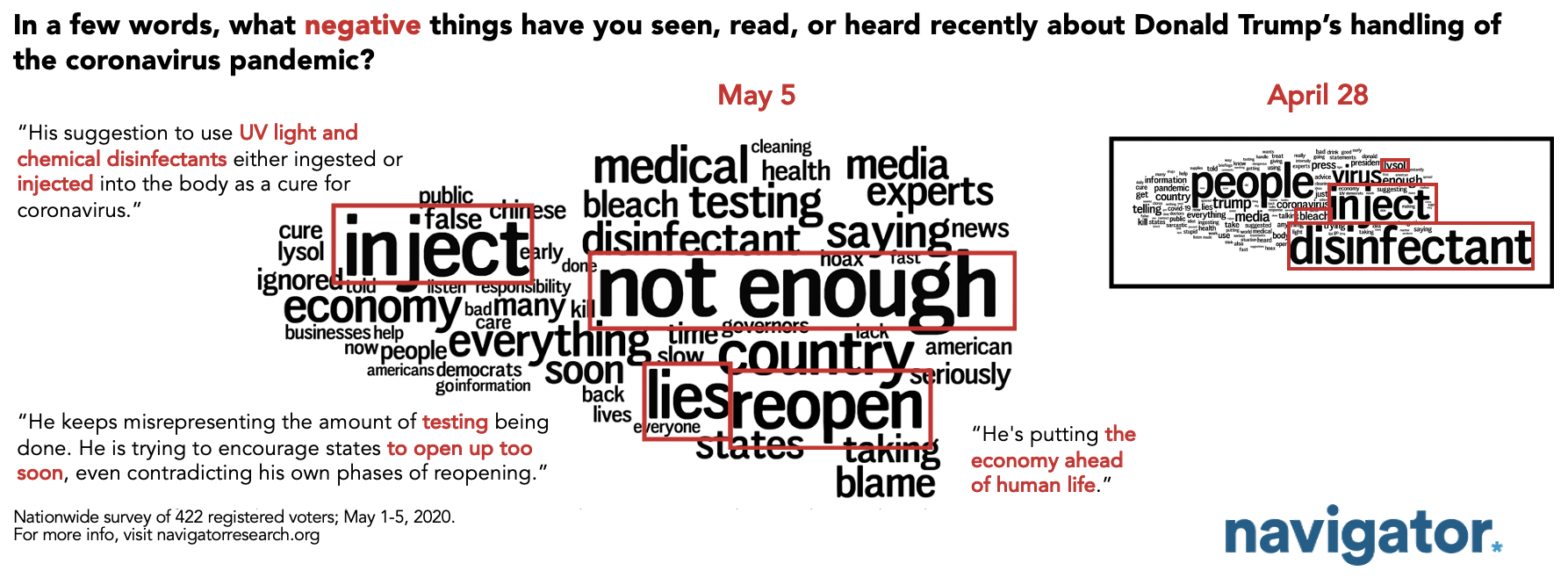
Northeasterners Most Likely to Say Their State and the Country in Crisis
Northeasterners are the most likely to say that the pandemic in their state and in the country as a whole is a “major crisis.”
- Despite the regional differentiation, around three quarters of Americans in each region describe the pandemic as a “major crisis” for the country.
A Third of Americans Know Someone Infected
32% of Americans know someone who has been infected with coronavirus, more than triple the percentage who knew someone infected on our first day of tracking on March 23.
- 37% of Democrats and independents know someone who has been infected, along with 25% of Republicans.
- 46% of Northeasterners report knowing someone who has been infected, much higher than 31% of Midwesterners, 27% of Southerners, and 29% of Westerners.
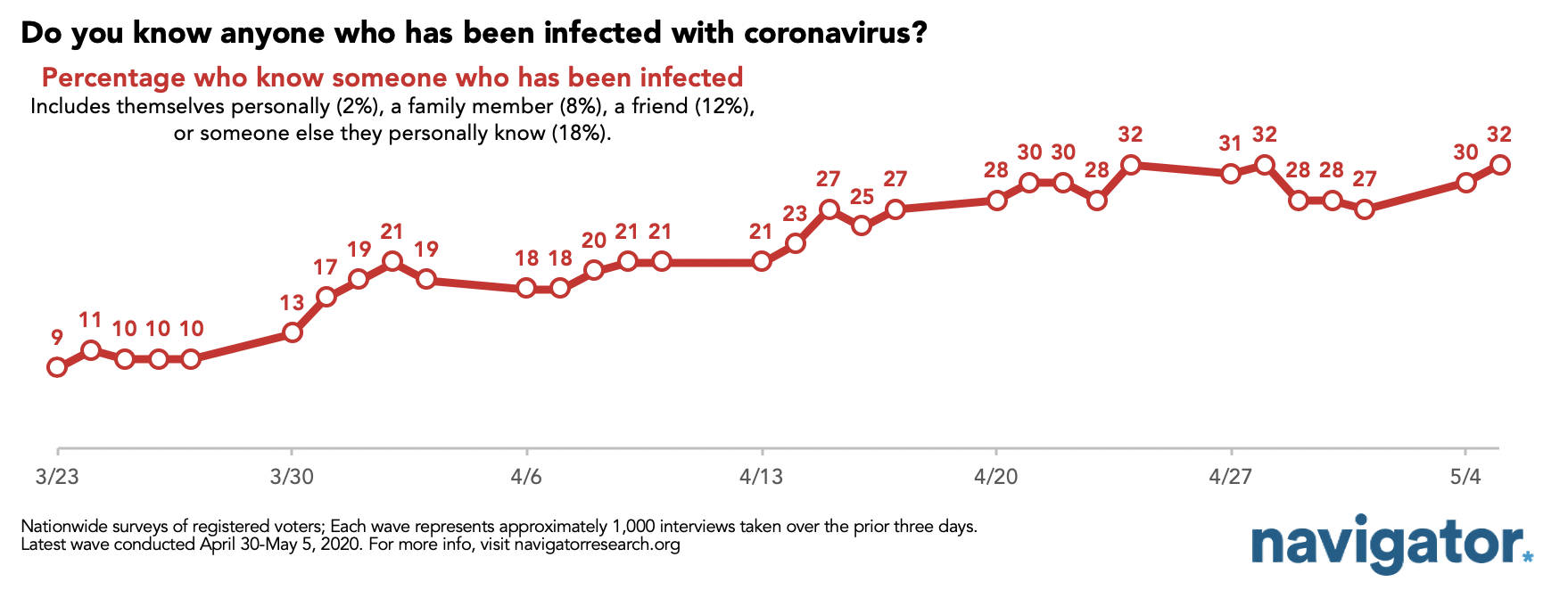
Both Uncertainty and Optimism Surrounding Pandemic
More than a quarter of Americans are not sure about the state of the coronavirus pandemic.
- While the share of Americans who believe the “worst is yet to come,” is declining, there’s been a rise in both the share who who believe the “worst is over,” as well as the share who are unsure. The share of those who are unsure about the state of coronavirus is up 12 points since our first update on March 23.
Republicans Divided on Ending Social Distancing
The vast majority of Americans are more concerned that social distancing will end too soon.
- This holds among Democrats (78% will end too soon) and independents (62%).
- Republicans are split by ideology: half of Republicans who are not very conservative (51%) are more concerned social distancing will end too soon. However, a majority of very conservative Republicans (55%) are more concerned that social distancing will go on too long.
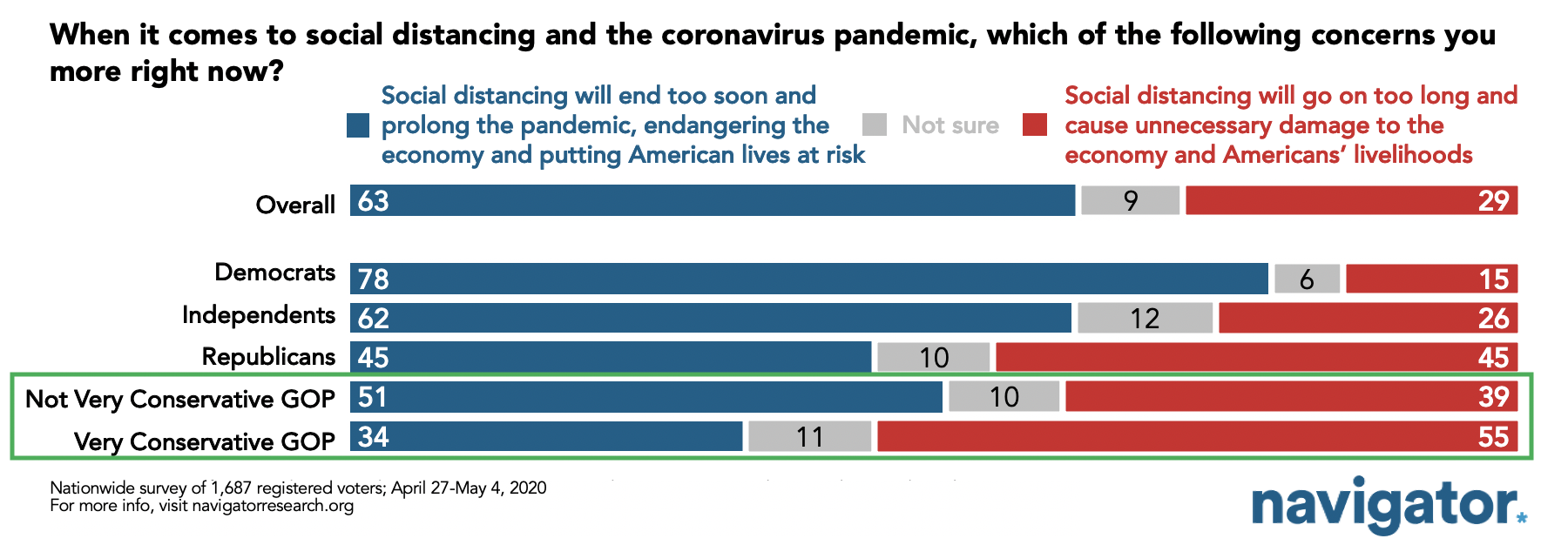
Democrats Seen as Looking Out for Working Class
A majority of Americans feel Donald Trump’s economic response favors the wealthy and big corporations, while a majority feel congressional Democrats’ policies favor middle and working class people.
- Independents are 16 points more likely to say that Democrats’ policies favor the middle class than Donald Trump’s.
